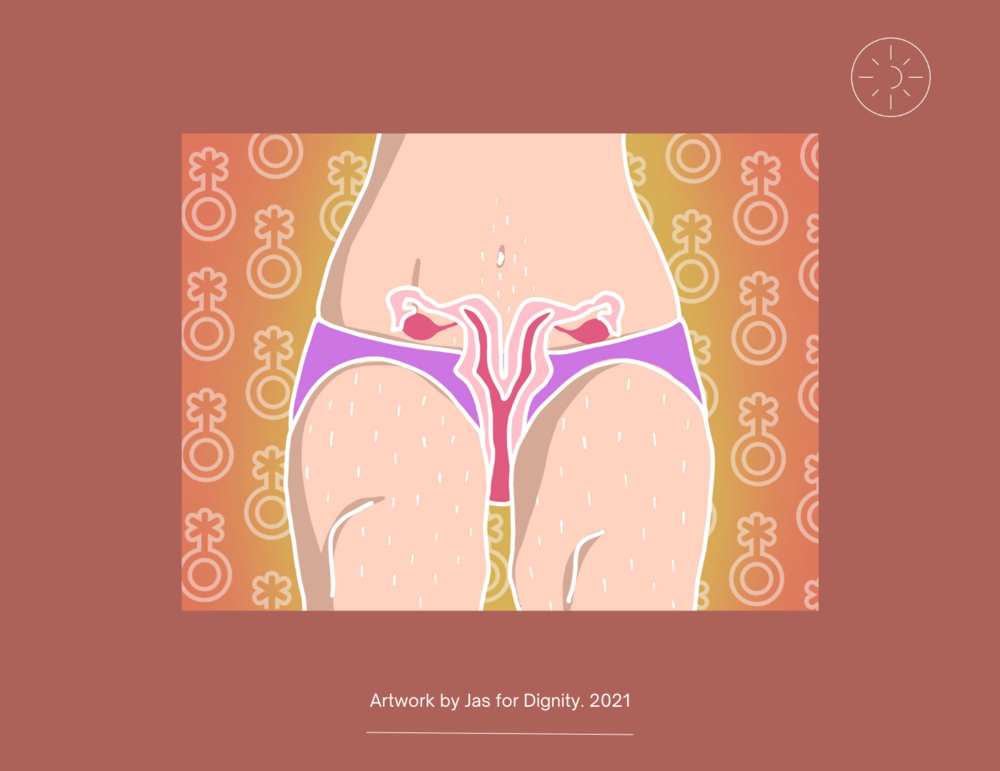
Kia ora Jas, can you tell us a bit about yourself?
I’m Jas or Jasper. I grew up in Hawkes Bay and I figured out I was a queer person around 13-15. When I was 15, I started figuring out my gender identity. I didn’t feel like a girl (I was assigned female at birth). I also hadn’t really gone through puberty the same way people around me were, I didn’t have a period for a while, I was 16 when I first got a period. I moved to Wellington to start university and I came out as a non-binary person. So that was the first thing for me before I started figuring out that I fall under the umbrella of intersex. Basically, an intersex person is a person whose secondary sex characteristics or primary sex characteristics don’t fall into the strict category of male or female. It could be hormonal, it could be chromosomes, it could be genitalia, it could be internal reproductive organs it’s a broad term.
Could you tell us a bit about your period journey and Uterus Didelphys?
A couple of years ago I started investigating my issues around bleeding and my period because it was just getting more and more painful. It sucked. And it was kind of confounded by the struggles of being a gender non-conforming person.
I tried all different birth controls and none of them have stopped periods for me, but the Mirena was the reason I found out I had two separate uterus chambers. When they put it in, instead of reducing my symptoms I found they made my periods more painful, and I knew something wasn’t right. They checked to make sure it was in the right place but when they checked it looked fine. So, they referred me to get an ultrasound but when I went to get my ultrasound the technician was looking for a long time and wasn’t saying much. And I was kind of like “Hey, what’s going on” and they said, “I don’t mean to alarm you, and I can’t say too much - you’ll need to get more information from the experts, but you actually have two uterus chambers.” She was like “It’s pretty rare but it does happen” and explained the merging process and what uterus didelphys is.
I’ll give you a little bit of background around what I know about Uterus Didelphys, or a deviated uterus.
In the womb, a person’s uterus starts developing when they’re a fetus with two separate tubes and then they merge together to create a uterus. Somewhere along the line for me, they decided not to merge fully which I think is a hormonal process. It’s very rare, but some people are born with two separate chambers, or in some people, they have a line of tissue separating the two chambers. Some people with separate chambers have two cervixes, and in even more rare cases there are people who have two separate vaginas or openings.
I had no idea that any of these things could happen until I got an ultrasound to understand why I was having such weird, frequent, painful periods.
Was that because there were two different chambers?
I haven’t got the best answers. Things I have been told is that they were shedding at different times, or they’re probably smaller than one uterus. But yeah, I was getting my period every two weeks. My guess is that hormones would dictate at the same time, but I was getting incredibly frequent periods. I was lucky that they were short and light, but so painful. Incredibly painful.
I guess it’s kind of like a cleft pallet right?
Yeah, it’s just a different variation. Which we all have, like double-jointed fingers. I guess when the variation happens around things that we put gender or sex on that’s when things get complicated because we have these binary ideas of both sex and gender.
You research intersex and you realise so many people have been coerced or had their bodies altered to fit these binaries better. These surgeries are often done when they’re infants too. ITANZ (Intersex Trust Aotearoa New Zealand) our national intersex organisation has done so much work here, and Mani Mitchell has been out and proud intersex person since probably the ‘80s or ’90s and they’ve done so much work.
One of the key facts that often is talked about is that Intersex people are as common as redheads, about 1 – 2% of the population. So many people don’t know they’re intersex. If you’ve never had your chromosomes checked or an internal ultrasound you just might not know.
So for me as a person. I have had an unfortunate intersectional of a painful time with periods as well as uncomfortable experience with periods as a gender non-conforming person. The only place you can find menstrual things is the women’s bathroom and sections which have been difficult as especially a few years ago I was quite masculine presenting.
It’s an interesting construct that we’ve decided upon, that everyone is male or female. And when intersex people are acknowledged it’s often as an abnormality and it doesn’t have to be that way because it’s not. So many indigenous cultures have always recognised that. Like in this country, Takatāpui have always existed. So colonisation has also been part of enforcing these really rigid gender and sex binaries and it doesn’t benefit most of us.
What role did periods play in your life?
Periods for me aren’t a happy topic or. I think it’s important to be open and talk about them. I remember being 15 and hearing some girls in class say “if you don’t have it by now there’s something wrong with you” and I remember thinking “oh god there’s something wrong with me” but also just the shame around periods and around like menstrual products In general.
I mean, I felt shame having a period as a female-identifying person, so it must be a whole additional layer of complexity when that isn’t the case.
There are trans people who have periods and that idea to them is dysphoric. I mean, same for intersex people. It’s a complex one but I want to change the role that periods have in my life.
Pain medication has given me the freedom to move around and not be bed-bound. Hopefully, if we as a nation can access CBD products then that would make my life better too. For people like me or people with endometriosis or polycystic ovary syndrome, periods are hell. Periods suck and we should be able to talk about something that’s basically a disability to us.
Totally, I think there is also an issue around people not being believed about the level of pain that can come with a period.
Yes, and not even understanding or knowing what’s normal to experience with periods. I think a lot of people get to their mid to late twenties and then get diagnosed with things like endo and PCOS because as a teenager you think maybe it is normal to faint when you have a period, or bleed for a month nonstop. We need more comprehensive sex education.
At your school did you get told much about this stuff? I remember we had one lesson on endo, but nothing on PCOS and nothing on painful periods generally.
No, but I still had relatively good sex education. In small town Hawkes Bay, we got shown all different types of birth control, but I never remember being told what periods should be like. It was ok, but there wasn’t any mention of endo or PCOS. And PCOS for some people falls onto the spectrum of intersex depending on the intensity of it. PCOS means you have more testosterone. So, some people have more facial hair, or a deeper voice which falls under the intersex umbrella. But it’s a decision with how you identify.
What would make you feel more included in the period advocacy space/period space in general?
It’s interesting. I think the majority of people who have periods are women or girls or people who align with that. But to me, it’s important to include minorities, always. I think changing the language to include ‘people with uteruses or people with periods’ is good. It’s also a way to be inclusive of women who don’t get their periods, or women who find out later in life they don’t have uteruses – which happens to some intersex and trans people.
The idea of equating wombs to women is kind of very sexist. Like people seeing women as only their parts. I have a lot of big galaxy brain thoughts around these ideas. Like, you are still a woman if you’re infertile, you’re still a woman if you find out you don’t have a uterus, you’re still a woman if you’ve had a hysterectomy. We have some very binary interesting ideas about sex and gender.
What are some of the main challenges you’ve faced?
In the past when I was being viewed or read more as a man going to things like gynecologist appointments, ultrasounds, or using men’s bathrooms when I had my period has been difficult.
Having to be an expert on your own physical health and conditions is also a challenge. Most doctors might have had small amounts of training on gender and sex minorities, but you end up having to be the expert. And it’s a lot to tell your healthcare providers how to care for you. I remember I tried taking testosterone (which is funnily enough that’s the only thing that stopped my periods). I have naturally very low levels of testosterone and estrogen naturally and I took testosterone for a little bit. It stopped my period but it came with masculinisation. I asked my doctor and endocrinologist what birth control I could take while also taking testosterone and neither of them had any idea. My doctor said ask my endocrinologist and my endocrinologist said ask my doctor. So, I stopped taking testosterone and have tried other birth controls. I guess medication and hormonal birth control weren’t made with bodies like mine in mind which is fun.
What’s the best thing to you about being an intersex person?
I think when you are forced to exist outside societal norms you are kind of forced to realise a lot of norms are arbitrary. If you’re forced onto the outskirts anyway, you may as well embrace anything you want to embrace. I think especially when it comes to people who love me, my friends or are attracted to me it feels authentic. They’re attracted to me for who I truly am. I feel like being non-binary or intersex or being on the outskirts/having some discrimination you sort of accidentally weed out all the shitty people and you end up being surrounded by the most accepting loving people. I think the self-acceptance that comes with finding community – like meeting someone and being like I like this person and they’re like me, so I kinda you like yourself you know? They’re being openly gender non-conforming and rocking it and I love them and everything they say so therefore I could also do that for myself.
I haven’t aligned myself with the intersex label for very long so I’m probably still finding out what the best things are. But probably community. There’s less pressure to conform myself to different things. I could conform but it serves my body better not to and that leads me to be able to wear the clothes I want, get the tattoos I want which lets me be who I want to be and that’s really nice.
What advice would you give to your younger self?
I would say to be patient and empathetic with yourself. Because rushing to find yourself, or find the right labels is putting pressure on yourself. You should just let yourself be and let this come to you in time. You will learn so much about yourself through the connections you make, and how you love and accept different people, and how they’ll teach you empathy for yourself.
Immerse yourself in the lives of people you think you think you might be similar to. I think you’ve got your whole life to figure out who you are. You are allowed to take the time.
So much about it is accepting yourself as well. Like you are already there too. Think about yourself like a younger sibling, you’d love you with all your flaws.
What inspired you to start talking about uterus didelphys and advocate for it?
Every time I told a family member or a friend about it, they would say I’ve never heard about that. And it was like, neither have I. So, I decided to tell people about it, it could be like a fun fact. No one’s heard about it, it could be a party trick (laughs).
Also, I wanted to break the stigma. Periods are a taboo topic anyway and I sort of accidentally found myself with a platform, it’s not huge but it’s a 1000 or something. But I occasionally get asked advice from young people and so I’m trying to become the person my younger self would have needed. And helping people helps me, it makes me feel good. So I guess sometimes informing people about your truth helps them.
What do you hope for in the future?
The world to be more accepting and loving and embracing diversity, differentness, and learning from each other. I hope around the topic of periods we can find better medication, find better birth control, we can fund vasectomies, or something (laughs) and we can start to move away from the idea that periods and menstrual health is very gendered. Because there is a group of us, no matter how small we are, it’s nice to feel included in the space. It makes us feel safe and comfortable. I hope we can do that. Make birth control better and easier to access. And I hope organisations like Dignity can keep doing awesome stuff to help with crap things like period poverty.
How can people best support intersex and non-binary people with their period journey?
Do your research. The resources exist out there, there are amazing charities and organisations out there like Gender Minorities Aotearoa and ITANZ who, have the job of providing great resources. Because asking the occasional individual, especially without compensation, for their time you can be bringing up stuff for them which is difficult. And I think that’s the case for lots of minorities, don’t take away from them to learn when you can do it yourself. But obviously like we learn by having face-to-face conversations too, but not at the detriment of the person or forcing someone to tell their story. So, I would say do your research. If you want to be a better ally to POC, disability rights – do your research too. If you’re using social media, follow a diverse range of people because they’re doing a lot of the work for you in showing their world, it’s a rare and good insight into your struggles.
Anything else you wanted add?
Think twice before addressing a group of people and assuming they have a similar experience. Like don’t assume all women have periods, they may not be able to menstruate or they’re infertile and you know it’s important to think about the language you are using and the harm they might do.
Thank you so much Jas!
Follow Jas and view more of their illustration work at here @inkedyodaart and here
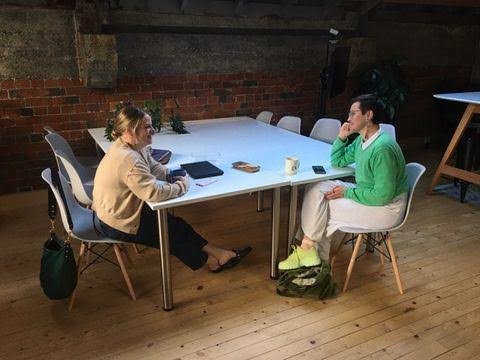
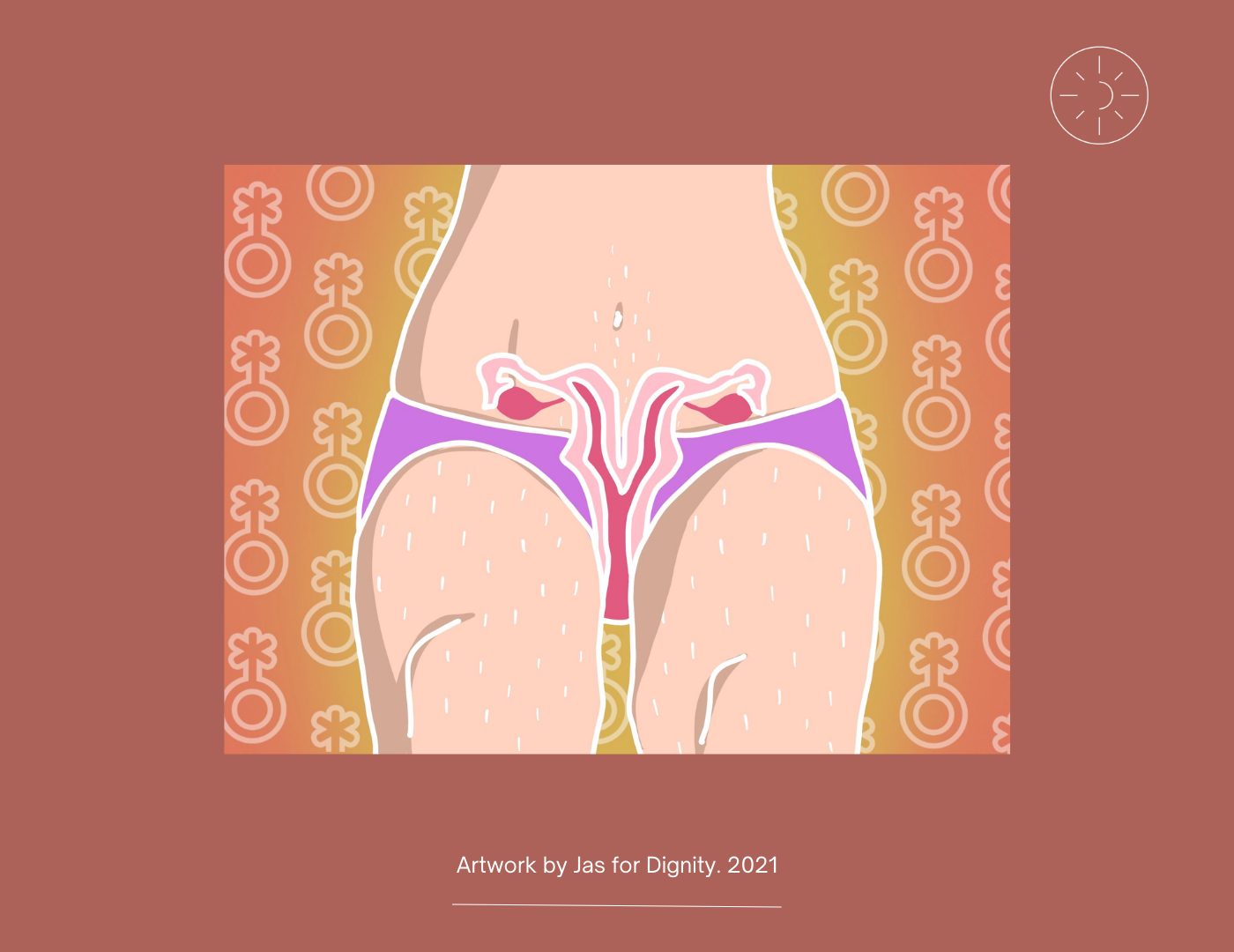
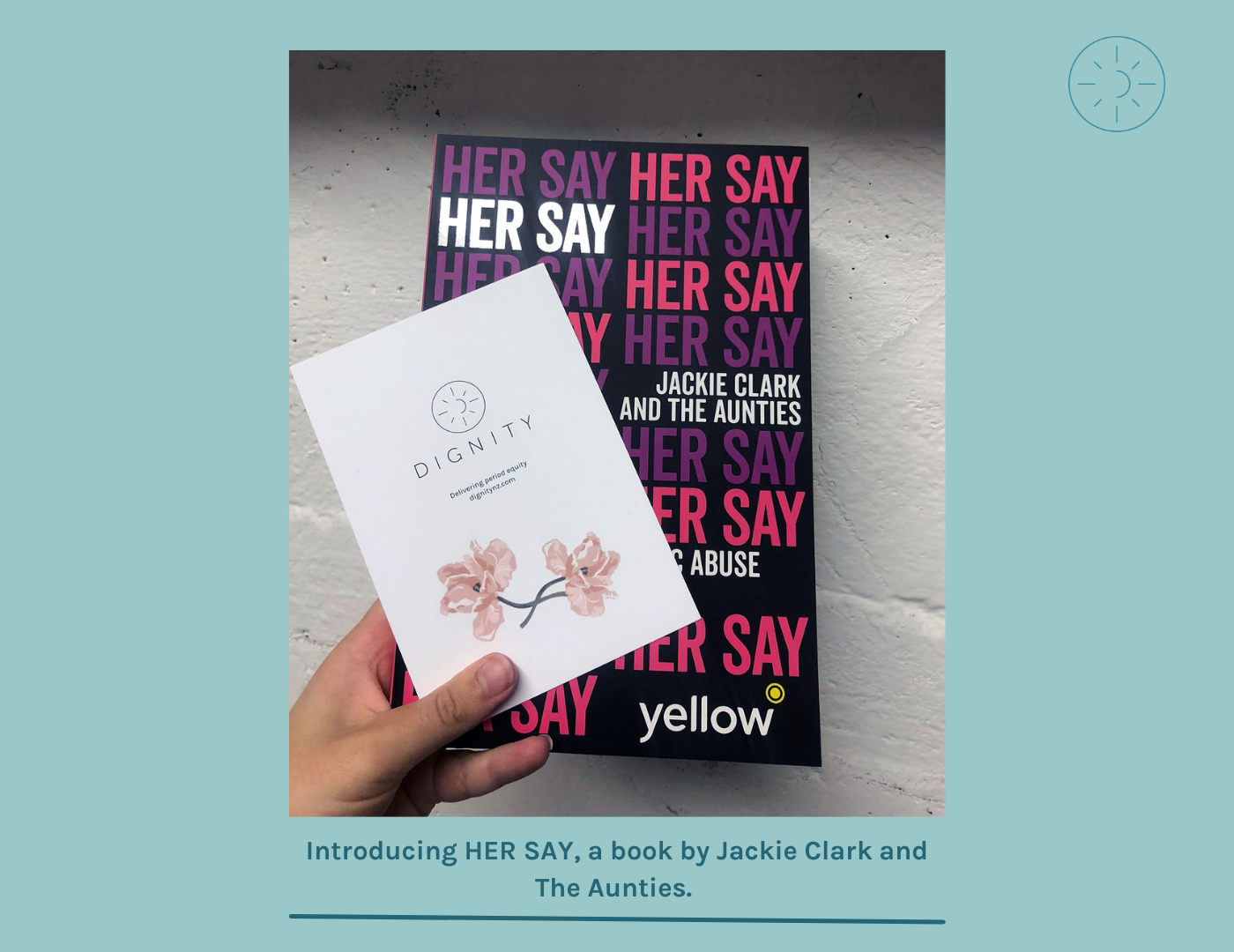
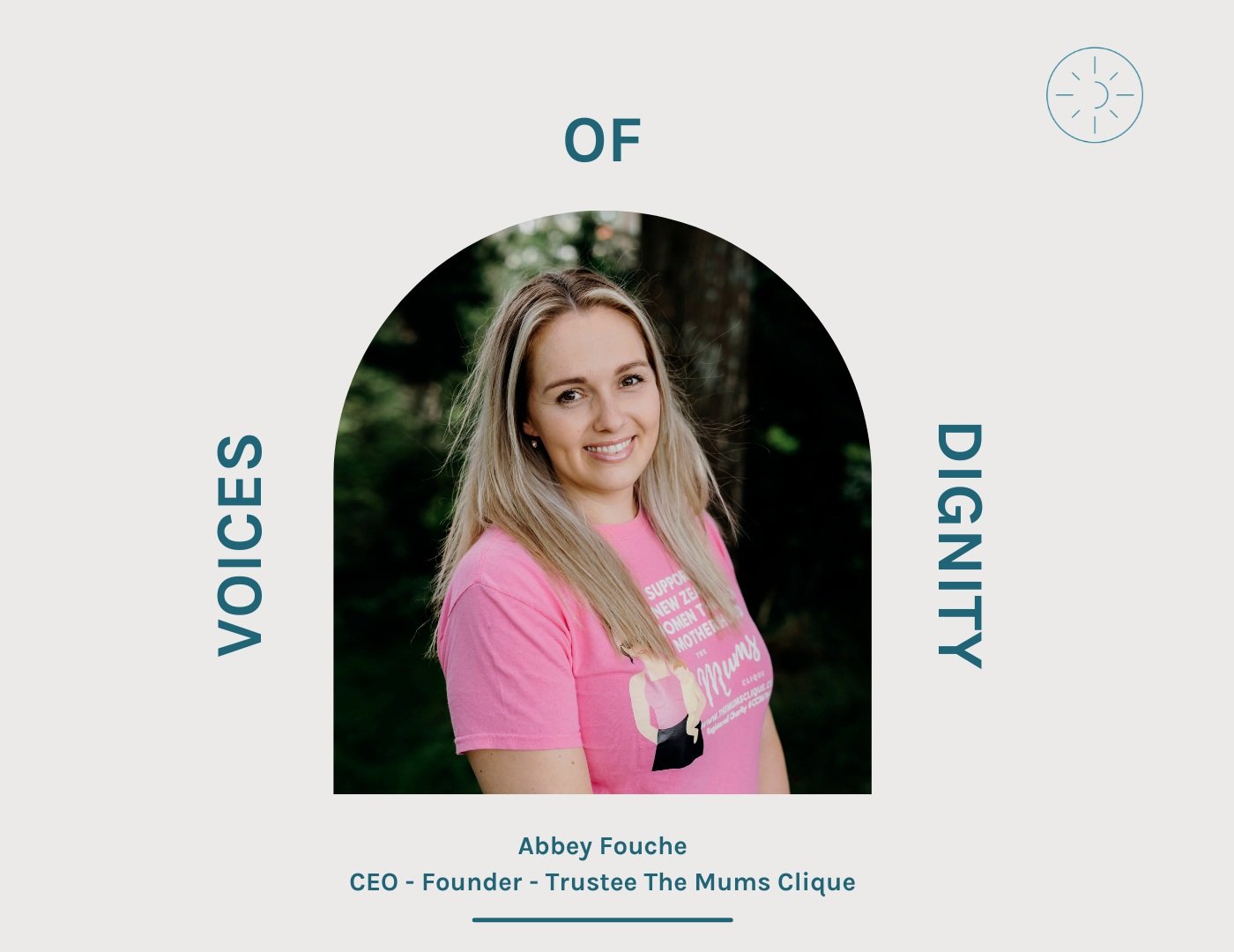

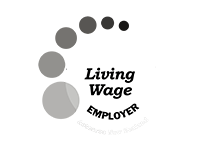


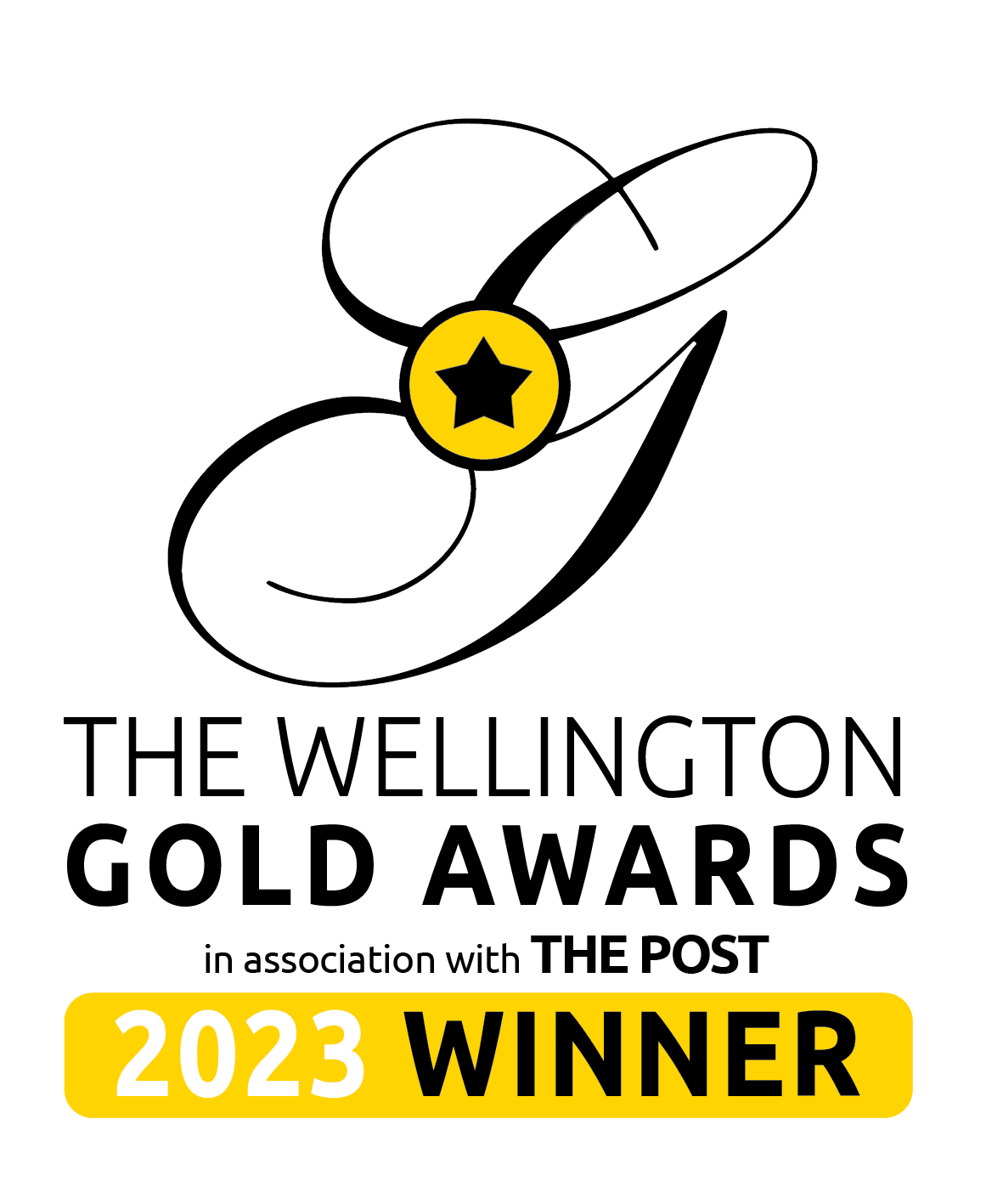
Leave a comment
This site is protected by hCaptcha and the hCaptcha Privacy Policy and Terms of Service apply.